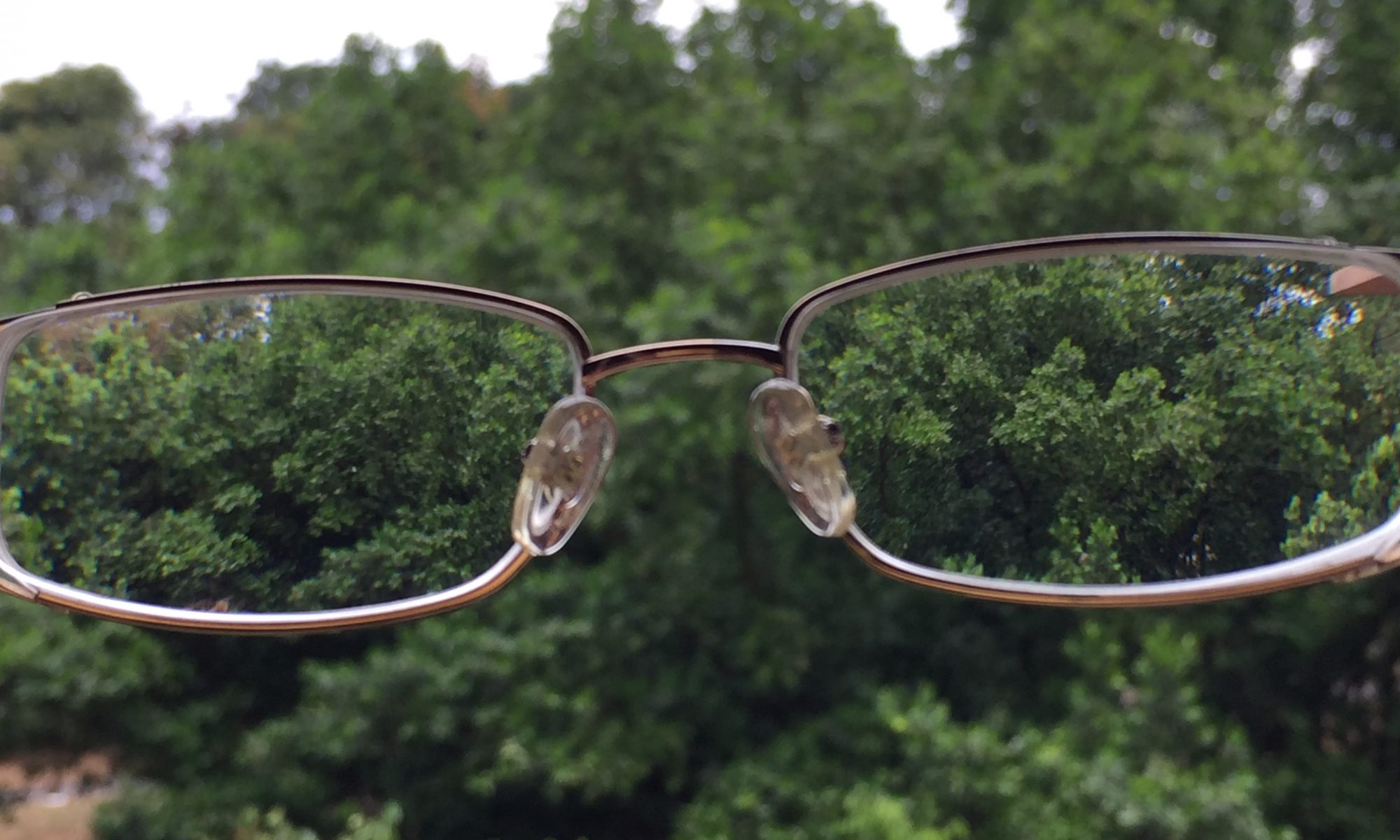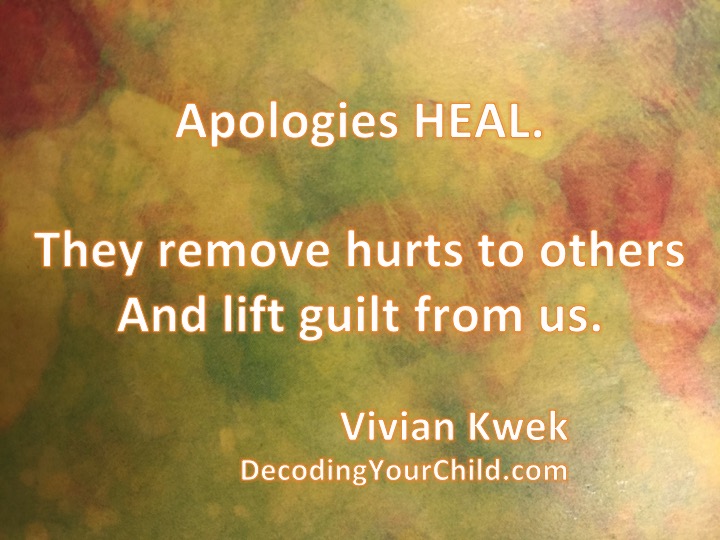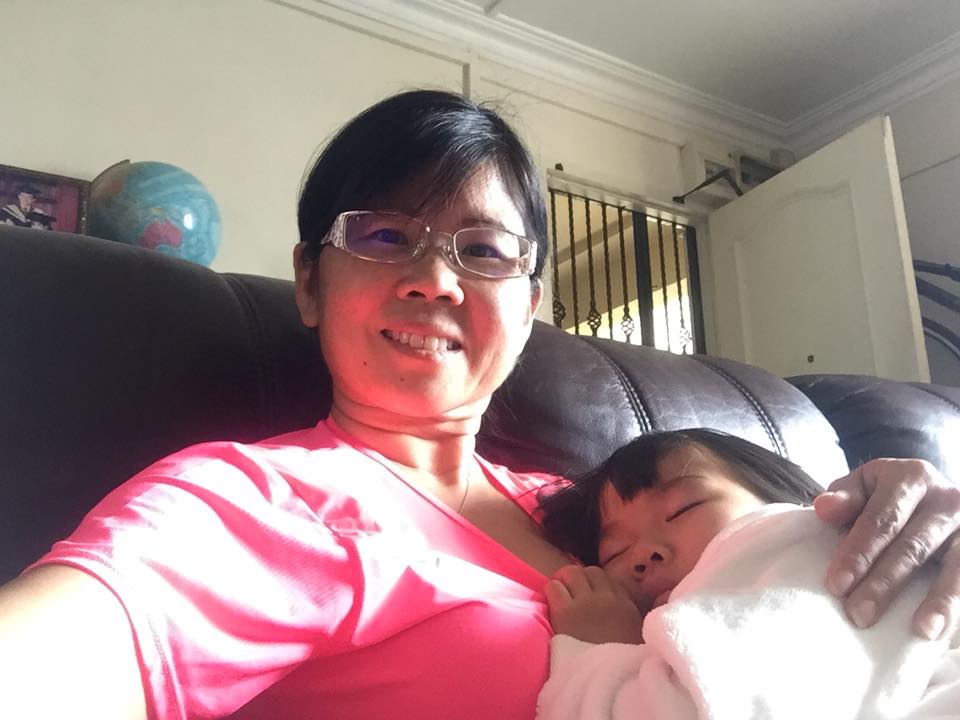I have been having very interesting conversations with my 14-year-old recently.
Last night, she was commenting about myopia. You see, she has been saying she needs glasses for a while and recently she went to the optometrist.
C: You know mom, I can’t imagine how people who need glasses function without glasses. My prescription is only 75 and 100 degrees. Yet I have so much difficulty seeing the bus numbers without glasses. I can’t imagine how it is like for someone who has a prescription of more than 400 degrees and does not have glasses.
Me: Well, I have a prescription of more than 400 degrees and I can’t function without my glasses. I thought you knew that. That’s why I always say I need my glasses to find my glasses. I can’t see without my glasses.
C: I knew you need glasses and without them you can’t see. But I never thought about how that felt, or how blurry things would be for you without your glasses. When the optometrist put the glasses on for me and I went out of the shop to look around, suddenly everything looked clear. And when I removed them, I realised how blur things have been. If it has been so blur for me, I can’t imagine how it is for you or anyone who has worse eyesight than me. I didn’t understand how it was like to NOT be able to see. But now, I have a better idea of how it is like for you.
With that comment of hers, a light bulb came on for me.
Lesson for Me
My dear C, you have no idea how important a lesson you have taught me, AGAIN.
How often have I known, yet NOT KNOWN, how difficult things are for my children?
When they struggle to stay focused, I know it is because their more mature nucleus accumbens (the pleasure-seeking centre of their brain) is driving their thoughts and actions and that their pre-frontal cortex (the logical decision making centre of their brain) is not quite mature yet to hold their goal in view.
But I don’t REALLY know how hard it is for them to focus because I still get impatient and judgmental when they are distracted.
Likewise, when they lose their temper, I know that, for my teens, it is because of the fluctuations of hormones in their bodies making control difficult, or, for my little one, that it is because she is really tired/hungry etc.
But I don’t REALLY know how hard it is for them to control their temper because sometimes I still get triggered when they “lose” it.
And there are parents whose children are hyperactive, or depressed, or perfectionists, or have sensory sensitivities, or a zillion other challenges. How WELL do most parents REALLY know the struggles their children go through?
Most times, we may feel “if only the kids would try harder…”, or worse, “they are leading us by our noses, manipulating us,” etc. I know I have been guilty of that.
If we really KNOW how our children feel and how they struggle, we will not have those thoughts at all.
The truth is we don’t REALLY know how hard it is for them to function “normally” unless we have the same condition as they do. That is why we tend to be more critical and impatient, less sympathetic and loving.
Unfortunately, that does not help our children. Our lack of empathy and lacklustre support makes it even harder for them to function normally.
So while I may “know” my children are having a tough time, and that they are doing their best, I still need to do the following:
- remember I don’t REALLY KNOW how awful they feel or how hard they are struggling,
- remind myself to take my 2 deep breaths,
- strike down my fear that I have lost control over them,
- tap into my unconditional love for them, and
- support them when they falter.
Once again, I am grateful to C for the insight she has given me. May her insight help you decode your children so you can help them overcome whatever challenges they have as well.
Happy Parenting!



